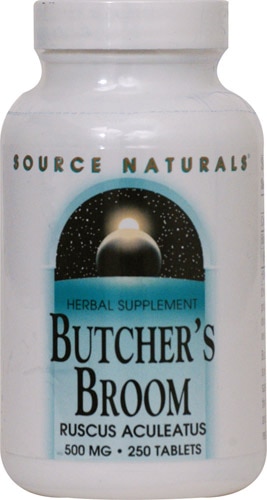[vc_row][vc_column][vc_column_text]
Metabolic syndrome sounds ominous — and it should. The conditions that make up metabolic syndrome can elevate your risk of heart disease, stroke and type 2
diabetes.
The five conditions that constitute metabolic syndrome (also known as syndrome X or insulin resistance syndrome) are:
- High blood pressure
- High blood sugar
- Excess body fat around the waist
- Low levels of HDL “good” cholesterol
- High levels of triglycerides

Metabolic syndrome diet impacts
Fortunately, this syndrome — affecting about one-third of U.S. adults — is “largely preventable” if you make lifestyle changes, the
National Institutes of Health says. Now, new research suggests that upping your intake of folate, vitamin B6 and vitamin B12 may be among those lifestyle changes.
†
The
study, published in the journal JAMA Open Network, found that eating foods chock-full of folate, vitamin B6 and vitamin B12 is associated with a lower risk of metabolic syndrome. For the study, researchers tracked data for more than 4,400 young Black and white adults in the U.S. collected in a span of over 30 years.
The metabolic syndrome analysis was conducted by researchers from Texas State University, Columbia University and the University of Alabama, Birmingham.
The findings suggest that adequate intakes of folate, vitamin B6 and vitamin B12 should be recommended for prevention of metabolic syndrome, according to a
news release about the study. The researchers say eating a diet rich in these vitamins is preferable to taking dietary supplements.
†
Sources of folate, vitamin B6 or vitamin B12 include:
- Asparagus
- Avocados
- Bananas
- Beef
- Broccoli
- Brussels sprouts
- Chicken
- Citrus fruits
- Clams
- Collard greens
- Mussels
- Oysters
- Romaine lettuce
- Spinach
- Turkey
Other diet and lifestyle changes to consider
Other new studies shed even more light on metabolic syndrome, which Medical News Today
explains is not a single disease but rather a collection of risk factors.
Naps lasting more than 30 minutes are associated with a higher risk of metabolic syndrome, according to recent
study led by researchers at Brigham and Women’s Hospital. Among those who took shorter “power naps,” the risk of metabolic syndrome wasn’t heightened.
“Not all siestas are the same. The length of time, position of sleep, and other specific factors can affect the health outcomes of a nap,” researcher Marta Garaulet said in a news release.
The study, published by the journal Obesity, assessed napping behavior among more than 3,200 adults from Spain.
A
study in India indicates that
vitamin D deficiency is prevalent among people with metabolic syndrome. “There is a significant negative correlation between vitamin D levels and some components of metabolic syndrome,” according to the study, published in the journal Cureus.
†
The Indian researchers say their findings suggest vitamin D supplements might benefit people with metabolic syndrome who experience vitamin D deficiency.
†
Closer to home, a
study published recently in the American Journal of Preventive Cardiology indicates that women who are physically fit or unfit and have metabolic syndrome are more likely than fit women without metabolic syndrome to experience serious cardiovascular problems.
The study included nearly 500 women who had undergone cardiac catheterization and exhibited symptoms of ischemic heart disease. Ischemic heart disease refers to heart issues caused by narrowed heart arteries, according to the American Heart Association.
Yet another recent study suggests that metabolic syndrome is a “modifiable risk factor” for gout. Gout is a form of arthritis. The
study, published in the journal Arthritis & Rheumatology, featured American men ages 20 to 39.
Taken as a whole, these studies emphasize the health threats presented by metabolic syndrome.
Metabolic syndrome risk factors
In 2020, Harvard Health Publishing
noted that the incidence of metabolic syndrome is on the rise.
“Metabolic syndrome may be the most common and serious condition you’ve never heard of,” according to Harvard Health Publishing.
The Harvard article cites a
2020 study that found that while the prevalence of metabolic syndrome in the U.S. crept up slight (from 32.5% to 36.9%) between 2011 and 2016, it rose more sharply among:
- Women (from 31.7% to 36.6%)
- Adults 20 to 39 (from 16.2% to 21.3%)
- Asian adults (from 19.9% to 26.2%)
- Hispanic adults (from 32.9% to 40.4%)
The article says it’s “particularly worrisome that metabolic syndrome is rising so fast among certain ethnic groups and young adults, and there is currently little reason to think these trends won't continue in the near future.”
†These statements have not been approved by the Food and Drug Administration. These products are not intended to diagnose, treat, cure or prevent disease.[/vc_column_text][/vc_column][/vc_row][vc_row][vc_column][vc_text_separator title="Featured Products" border_width="2"][vc_row_inner equal_height="yes" content_placement="middle" gap="35"][vc_column_inner width="1/3"][vc_single_image image="166695" img_size="full" alignment="center" onclick="custom_link" img_link_target="_blank" css=".vc_custom_1683668938961{padding-right: 7% !important;padding-left: 7% !important;}" link="https://www.vitacost.com/metavo-metabolism-support-powder"][/vc_column_inner][vc_column_inner width="1/3"][vc_single_image image="166694" img_size="full" alignment="center" onclick="custom_link" img_link_target="_blank" css=".vc_custom_1683668957850{padding-right: 7% !important;padding-left: 7% !important;}" link="https://www.vitacost.com/natures-way-metabolic-advantage-thyroid-formula"][/vc_column_inner][vc_column_inner width="1/3"][vc_single_image image="166696" img_size="full" alignment="center" onclick="custom_link" img_link_target="_blank" css=".vc_custom_1683668974426{padding-right: 7% !important;padding-left: 7% !important;}" link="https://www.vitacost.com/new-chapter-metabolic-health-turmeric-black-seed-blend-60-vegetarian-capsules"][/vc_column_inner][/vc_row_inner][/vc_column][/vc_row]




